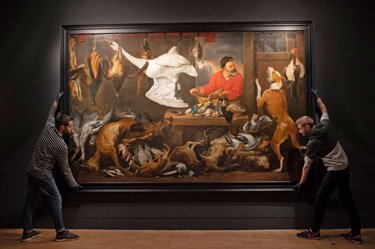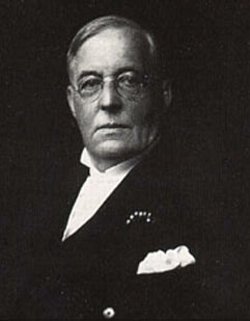Category Archive 'Cambridge University'
20 Sep 2021


George Steiner
The latest World Spectator has several nice pieces, which I cannot resist quoting.
Frederic Raphael, novelist and noteworthy screenwriter, published a scintillating letter, simultaneously affectionate and rivalrous, to his (deceased last year) friend the Jewish polymath George Steiner which, at one point, repeats a humorous, self-deprecatory story Steiner used to tell.
[A]t your first dinner in King’s, you had taken a modest seat one place from the end of high table. Your neighbor, an old professor of mathematics, did not return your vespertine greeting. You and he sat with your backs to the serving table, from which college servants brought charged salvers to the Fellows and their guests. At dessert, a heaped silver platter of the first strawberries of spring was carried along to the Provost and then along the far side of high table. You watched the towering treat being sapped by more or less voracious dons. Eventually, the platter came to your elbow, the penultimate diner. Twelve strawberries remained.
‘The question that I posed to myself,’ you told us, ‘and which I now put to the company is, in view of the fact that the senior wrangler on my left was the only fellow to be served after me, how many strawberries should I, a guest of the college, be advised, en bon débutant, to take?’
Playing up, I made the stooge’s choice of six; so, I believe, did the others, except for Beetle, who said, ‘Five?’
You looked at her quickly and then said, ‘Five is precisely the number, after brief reflection, that I myself chose, with due deference to my neighbor.’
‘And?’
‘Indeed. As the waiter switched the salver and its diminished cargo to the one remaining, so to speak, candidate, the old professor looked at me for the first time, eyes brimming with contempt. “You bloody fool,” he said.’
You replied, with properly obsolete courtesy, ‘I beg your pardon?’
‘You bloody fool,’ he repeated.
You said, ‘Might you do me the honor of explaining your sanguine choice of courtesies?’ The old mathematician swiveled round to point at the serving table behind your back. Another wide salver, freighted with glistening strawberries, was even then being removed, unbroached, to the kitchen. ‘Had you but had the audacious intelligence to take all the few remaining berries,’ he said, ‘I should have been free to help myself as copiously as I had looked forward to doing.’
RTWT
05 Feb 2020


The Telegraph has today another of those stories that makes you want to launch some Hellfire missiles from a drone at another elite university.
Cambridge University Students’ Union has said that having military personnel at freshers’ fair is “alarming†for attendees and could “detrimentally affect†their mental health.
Students voted to ban any societies from bringing firearms along to the fair after Stella Swain, the welfare and rights officer, argued that some people may find them “triggeringâ€.
The motion said that the presence of firearms and military personnel at the fair shows “implicit approval of their use, despite the links between military and firearms and violence on an international scaleâ€.
Ms Swain, who proposed the motion, pointed out that CUSU had previously committed to supporting efforts to “demilitarise†the university, and that freshers’ fair should not be a place for “military organisations to recruitâ€.
“The presence of firearms and military personnel at freshers’ fair is alarming and off-putting for some students, and has the potential to detrimentally affect students’ mental welfare,†the motion said.
Colonel Richard Kemp, the former commander of the British Forces in Afghanistan, labelled the motion as “pathetic, to say the very leastâ€.
RTWT
23 Nov 2019


Frans Syders, The Fowl Market, 1618, Fitzwilliam Museum, Cambridge.
Yahoo:
A Cambridge college has removed a 17th century painting from the wall of its dining hall after students complained it was putting them off their food.
Hughes Hall reportedly received complaints from vegetarians students about The Fowl Market, which shows a collection of dead animals hanging from hooks.
The painting, by Flemish artist Frans Snyders, was on long-term loan from the university’s Fitzwilliam Museum but has now been taken down.
It has been replaced in the dining room by a work by Damian Hirst.
A spokesman for the museum told the Daily Telegraph: “Some diners felt unable to eat because it was on the wall. People who don’t eat meat found it slightly repulsive. They asked for it to come down.â€
RTWT
Millennials keep setting new records in pussification, don’t they?
The irony of replacing a Flemish still-life essentially depicting comestible abundance with some artwork by “Maggots Hatching into Flies,” “Sliced-up Cow and Calf,” “Dead Shark in Formaldehyde,” “Human Skull Covered in Diamonds” Damien Hirst is downright exquisite. Now, it will be the people who know good art who will suffer from deranged digestion.
22 Mar 2017


Facial reconstruction of Context 958 burial.
Gizmodo reports on the reconstruction of the face of a man who lived 700 years ago by Cambridge scientists.
[H]ere’s what we know about Context 958.
He was just slightly over 40 years old when he died. His skeleton showed signs of considerable wear-and-tear, so he likely lead a tough and hard working life. His tooth enamel stopped growing during two occasions in his youth, suggesting he likely lived through bouts of famine or sickness when he was young. The archaeologists found traces of blunt force trauma inflicted to the back of his head, which healed over before he died. The researchers aren’t sure what he did for a living, but they think he was a working-class person who specialized in some kind of trade.
Context 958 ate a diverse diet rich in meat or fish, according to an analysis of weathering patterns on his teeth. His profession may have provided him with more access to such foods than the average person at the time. His presence at the charitable hospital suggests he fell on hard times, with no one to take care of him.
“Context 958 was probably an inmate of the Hospital of St John, a charitable institution which provided food and a place to live for a dozen or so indigent townspeople—some of whom were probably ill, some of whom were aged or poor and couldn’t live alone,†noted John Robb, a professor from Cambridge University’s Division of Archaeology, in a statement.
Strangely, he was buried face down, which is rare but not unheard of in medieval burials.
Full story.
29 May 2016


University of Cambridge Research:
A new app which tries to guess your regional accent based on your pronunciation of 26 words and colloquialisms will help Cambridge academics track the movement and changes to English dialects in the modern era.
Along with colleagues from the universities of Zurich and Bern, Cambridge’s Adrian Leemann has developed the free app English Dialects (available on iOS and Android) which asks you to choose your pronunciation of 26 different words before guessing where in England you’re from.
The app, officially launched today on the App Store and Google Play, also encourages you to make your own recordings in order to help researchers determine how dialects have changed over the past 60 years. The English language app follows the team’s hugely successful apps for German-speaking Europe which accumulated more than one million hits in four days on Germany’s Der Spiegel website, and more than 80,000 downloads of the app by German speakers in Switzerland.
“We want to document how English dialects have changed, spread or levelled out,†said Dr Leemann, a researcher at Cambridge’s Department of Theoretical and Applied Linguistics. “The first large-scale documentation of English dialects dates back 60-70 years, when researchers were sent out into the field – sometimes literally – to record the public. It was called the ‘Survey of English Dialects’. In 313 localities across England, they documented accents and dialects over a decade, mainly of farm labourers.â€
The researchers used this historical material for the dialect guessing app, which allows them to track how dialects have evolved into the 21st century.
“We hope that people in their tens of thousands will download the app and let us know their results – which means our future attempts at mapping dialect and language change should be much more precise,†added Leemann. “Users can also interact with us by recording their own dialect terms and this will let us see how the English language is evolving and moving from place to place.â€
The app asks users how they pronounce certain words or which dialect term they most associate with commonly-used expressions; then produces a heat map for the likely location of your dialect based on your answers.
For example, the app asks how you might say the word ‘last’ or ‘shelf’, giving you various pronunciations to listen to before choosing which one most closely matches your own. Likewise, it asks questions such as: ‘A small piece of wood stuck under the skin is a…’ then gives answers including: spool, spile, speel, spell, spelk, shiver, spill, sliver, splinter or splint. The app then allows you to view which areas of the country use which variations at the end of the quiz.
It also asks the endlessly contentious English question of whether ‘scone’ rhymes with ‘gone’ or ‘cone’.
Read the whole thing.
20 Dec 2012

Montagu Rhodes James (1862-1936), Provost of Kings College 1905-1918 and of Eton 1918-1936.
The hero of Shane Leslie’s “The Cantab” (1926) is matriculating at King’s College, and having forgotten the name of the college’s Provost attempts to get the Dean to mention his name:
“Again Edward sought a line on the mysterious Provost. How was he to know and venerate him? The Dean answered, ‘The Provost is essentially himself. Though a Deacon, he has reformed this College and made it tolerable to a layman. He knows all the ghost stories of the last thousand years. He walks in the paths of medieval Apocrypha and finds relaxation in obscure Hagiology. You may overhear him humming the Archbishops of York backwards, or counting the Spanish Cathedrals in feet. He is likely to be consulted when those Books are opened with which we are threatened on the last day.’ The Dean leaned back with a grey smile.”
Your are browsing
the Archives of Never Yet Melted in the 'Cambridge University' Category.
/div>

Feeds
|









